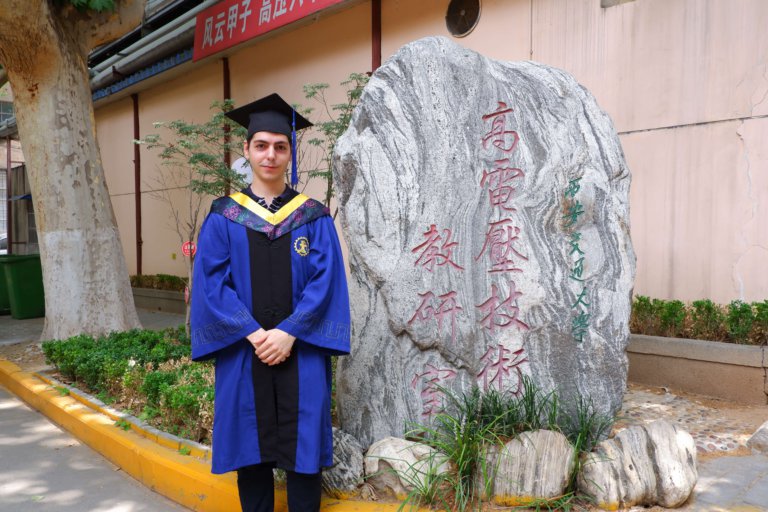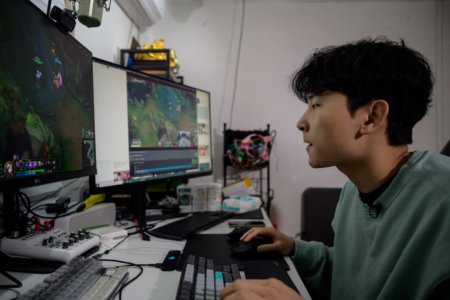
“Take us back to China,” writes @Pietro40914291 AKA Pietro Caccavella on Twitter, an Italian PhD candidate who enrolled to study in China last September. This 27-year old electrical engineering student at Xi’an Jiaotong University is one of the many unable to return to China. Every day since China shut its borders to nearly all travellers last March, his despair deepens.
“My dream career as a researcher has been jeopardised. China, my home, is unreachable. Authorities may see it as I am forced to give up on my studies but I am actually forced to give up on my life. Nobody would care anyway. I am just talking to myself,” he tweets.
Before the pandemic, many flock to study in China, attracted by its low fees and increasingly high standards. In 2019, there were nearly half a million international students in China, the majority of which are pursuing degree programmes. Many enjoyed big subsidies, explored “an amazing culture,” and worked towards futures flushed with jobs, especially at projects under the Belt and Road Initiative.
Like Caccavella, they no longer have such rosy outlooks. PhD candidates, in particular, are dejected as they see their fieldwork or lab work in limbo.
Below we speak to Caccavella about international students who now can’t study in China because of the pandemic and his backup plans:
Tell us a bit more about your situation as an international student stranded from your research in China.
As you may know, China has not allowed international students back since March last year. They banned students from entering due to the pandemic which is, of course, reasonable.
This situation affects everyone in a different way according to several issues. Personally, I’m facing a lot of problems despite the fact that I only finished the first year of my PhD.
The six-hour time difference made it very difficult because I had to attend classes at hours like 2 a.m. I tried to keep my schedule as if I were in China but it proved to be stressful and unhealthy.

PhD candidates are in dire need of resuming their fieldwork or lab work, which are essential to their programmes. Source: Pietro Caccavella
Unis offer the option to attend recorded classes to overcome this problem but servers sometimes don’t work. Also, there would be no interaction with professors which makes it a useless option.
Regarding my research, I’m glad my professor and my team understand the situation because they arrange meetings accordingly. But, this limits my availability as well as theirs.
For instance, we have meetings only during the afternoon in China but they prefer mornings because of their schedules. Sometimes, it’s impossible to arrange very important meetings.
What made you choose to study electrical engineering? Is there a personal story behind this?
I chose to pursue my PhD in Electrical Engineering because of my background. I’ve always had a particular interest in this scientific sector since high school.
My bachelor’s degree at Politecnico di Milano made me more fascinated in this field of study. I’ve reached higher levels with a double master’s degree in electrical engineering there and at Xi’an Jiaotong University.
This international journey gave me advanced knowledge of maths and physics. I realised that research in this field is what I want to do.
What made you choose to study in China?
I chose to study in China because of the previous experience I had there. I spent two years in Xi’an for my master’s and I fell in love with the country.
I found Chinese culture and history fascinating. The impact of a completely different environment from the one I was used to was pretty much positive.

International students are shut out from what could have been a life-changing study in China experience. Source: Pietro Caccavella
Although I couldn’t master the language, it was an experience so immersive that I’ve learnt a lot from it. I consider the language challenging yet interesting. Overall, I discovered a stimulating place where I foresee myself settling down.
Do you think it would have made a difference if you studied at a local institution?
A local institution in Italy would have been different from many points of view. The area of the research is so specific that it’s challenging to find an institution that provides a “dream” career for a potential researcher.
Of course, there are different paths one can choose but at Xi’an Jiaotong University, I found the subject and methodology to be unique. In my country, there are several opportunities I could have undertaken.
Although I appreciate the high levels and standards, it’s far from the one I had in China.

With scant development on the status of international students return to China. many students are missing out on crucial hands-on work. Source: Pietro Caccavella
Has your supervisor been supportive in your studies and research thus far?
My supervisor has been more than supportive of my studies and research. I consider myself lucky because we can often communicate and he understands my situation and time difference.
He tries to make things easier by arranging meetings during my mornings and does not expect me to work at night. I’ve heard of international students who cannot reach their supervisors and this is a major problem that leads them to lose motivation.
I’m glad I have my current supervisor and I wish all students can solve their problems.
What is being done at the moment to reassure international students regarding their situations and getting back to study in China? What more should be done?
“China always attaches great importance to its international students,” foreign ministry spokesperson Zhao Lijian said at a press conference this year. These are his words to try and reassure students in an effort to bring us back to the country.
I am sure they will plan something to let us back to China but it’s been a long time now and there is so far, no news regarding our return. The problem is making things hard for many medical and PhD students who need practice and labs to conduct studies and research.
I’m afraid all we can do is wait for now. There are many things happening right now worldwide including new COVID-19 cases in China which makes students lose hope.
I know there are things that need to be prioritised but the future of many students is at stake here. I think the authorities should provide information about solid plans about foreign students. A glimpse is necessary because this limbo would only make us more depressed.
Do you have a backup plan for your educational path if China does not start allowing students back in?
I do have a backup plan. As of now, I have a little work experience and my uni knowledge is still fresh as I’m young. If I work hard, I can find a job in my country.
But in that case, I would not be entirely satisfied because I found research I’m committed to and I have no intention of doing my PhD anywhere else. I wouldn’t want to give this journey up if possible.
My research started 4 years ago with my Master’s Degree. I was about to reach the apex of it with my PhD and now I’m forced to drop out. Research is something so specific it can’t be done elsewhere. Future ruined as well as my past#takeUsBackToChina
— Pietro (@Pietro40914291) August 17, 2021
My family’s financial situation does not leave much of a choice since China suspended scholarships for all students outside the country. It makes me feel like a burden to my family sometimes.
Plus, the stress from the time difference and the unavailability of labs would make it very hard to obtain this PhD (now that I need experimental validations of my research). These problems mean I have to change my backup plan but it’s not easy to give up on what I consider my dream career.
What advice do you have for international students who want to study in China?
For all the international students who want to study in China, I strongly recommend it. It’s an absolutely amazing experience and it can be an intriguing challenge but worthwhile.
These times marked by the pandemic is a definite challenge so, at the moment, I would suggest waiting for things to get better.










